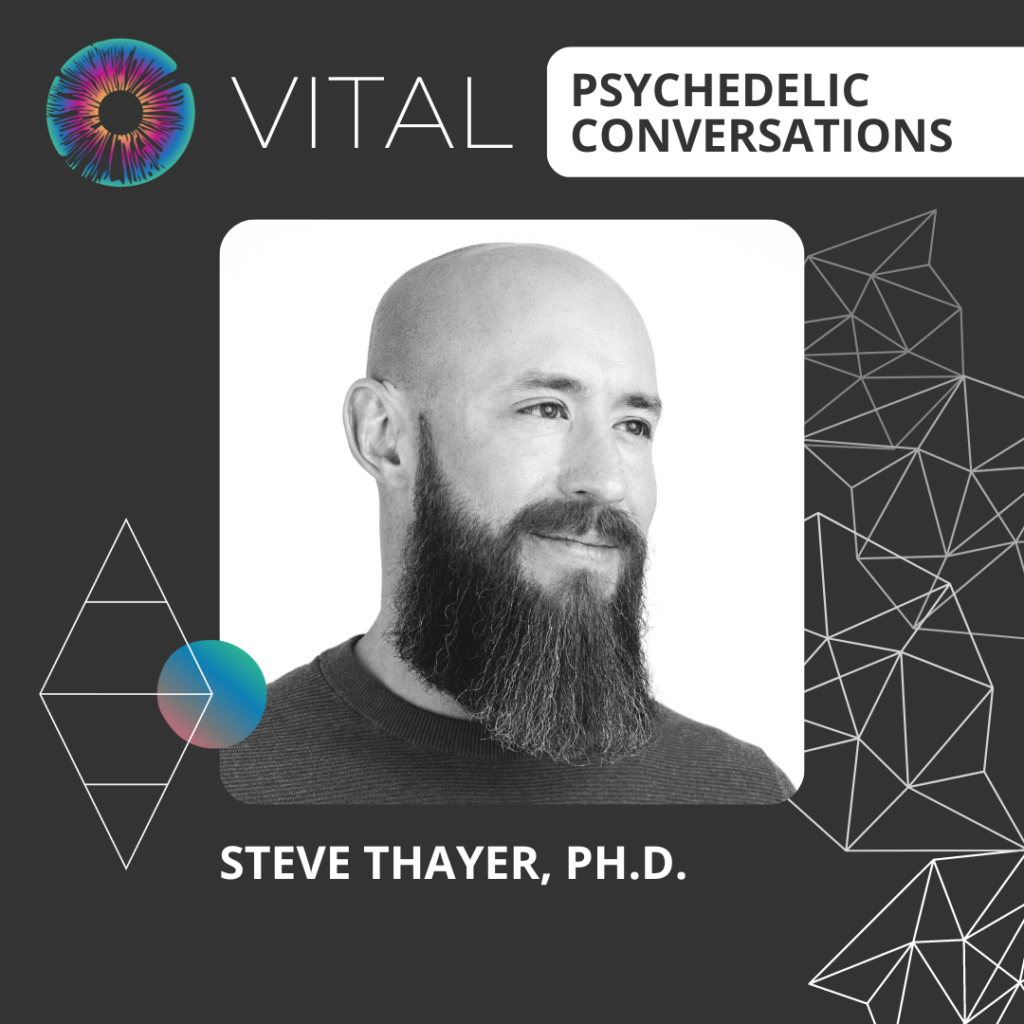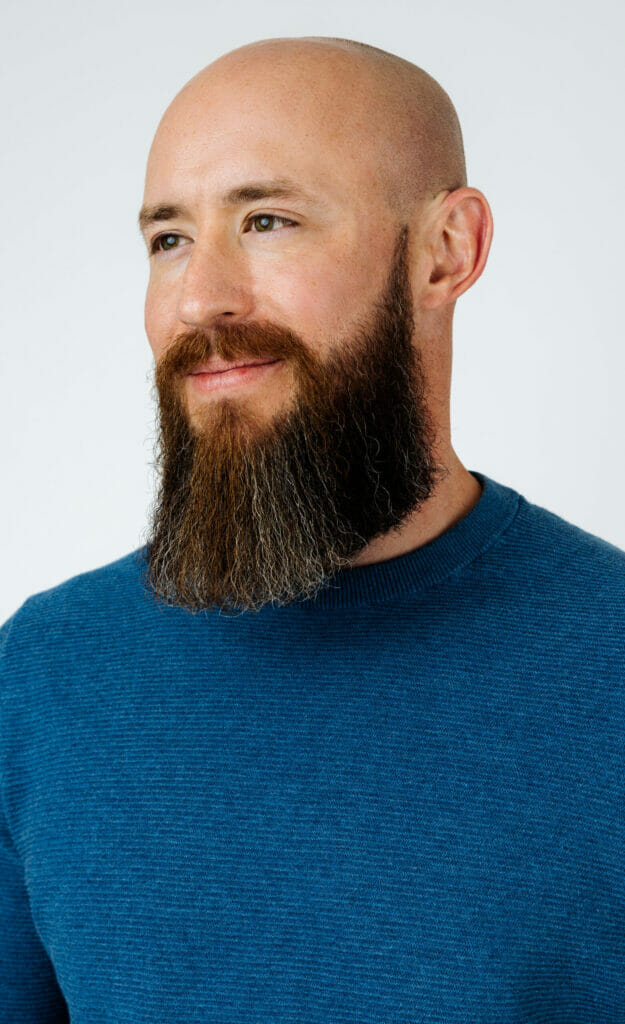
PT345 – Vital Psychedelic Conversations
August 9, 2022
Featuring: Dr. Steve Thayer
In this episode, Kyle returns with another edition of Vital Psychedelic Conversations – this time with past guest Steve Thayer: clinical psychologist, Clinical Director of Education & Training at Novamind, and co-host (with Dr. Reid Robison) of the Psychedelic Therapy Frontiers podcast.

In this episode, Kyle returns with another edition of Vital Psychedelic Conversations – this time with past guest Steve Thayer: clinical psychologist, Clinical Director of Education & Training at Novamind, and co-host (with Dr. Reid Robison) of the Psychedelic Therapy Frontiers podcast.
He talks a lot about integration and what psychedelic-assisted therapy really means, pointing out that much of integration work is just general good mental hygiene. He talks about how clients need to be open to where the experience takes them, but remember why they sought it out in the first place: What change are they looking for? He gives advice for people looking to enter the field, and points out the difficulties in comparing the efficacy of different types of therapy (as most studies focus on the drug itself).
He also discusses the main pillars of therapy and the essential domains of psychedelic-assisted psychotherapy; his theoretical orientations (parts work, emotion-focused therapy, and acceptance and commitment therapy); the importance of trusting the inner healer (but with some structure); the unique communal aspects of group work; integration challenges he’s run into; mindful awareness; cognitive fusion; the importance of helpers getting help; and how psychedelics make us comfortable with not knowing.
Notable Quotes
“Everyone gets really excited, in my experience, about the medicine: ‘Can psilocybin cure my depression?’ ‘Can ketamine cure my trauma?’ ‘Can MDMA make me whole again?’ …People come to the doctor for the cure, and they just sort of expect the medicine to do the work. The medicine does a lot of work, but it doesn’t do all the work.”
“We don’t really know what’s going on when you’re in a psychedelic experience. We’ve got our predecessors who worked with this medicine a lot, and we’ve got the ancient traditions that have been using plant medicines and altered states for thousands of years that we can learn from, and then we have a little bit of empirical research here in the modern era; but to say that that gives us the authority to say, ‘Well, we know exactly what’s going on when you take this much of psilocybin or this much of LSD, and this is exactly what you should do to navigate that experience’ would be unbridled hubris.”
“If you know you want to become a psychedelic-assisted therapist, become a good therapist first. You can get training on the psychedelic medicine later. For me, I’m biased because I am a psychotherapist, [but] I think becoming a really skilled, competent therapist is really going to be the harder thing to do than it is to learn how to work with these medicines.”
“I’m also well aware that just because I’ve been trained in a Western modern psychotherapeutic approach, that I don’t have any kind of monopoly on the wisdom it takes to heal. …There are plenty of guides who work outside this paradigm that I’ve been licensed within who I would be more than happy to send a loved one to – that I would go to myself because I want to learn from their wisdom. We haven’t cornered the market on that.”
Links
Psychedelic Therapy Frontiers podcast
Psychedelics Today: PT300 – Dr. Richard C. Schwartz – Vital Psychedelic Conversations
Thecut.com: You Won’t Feel High After Watching This Video
Cedarpsychiatry.com/edu: Foundations of KAP course coming soon


